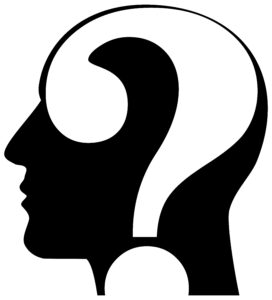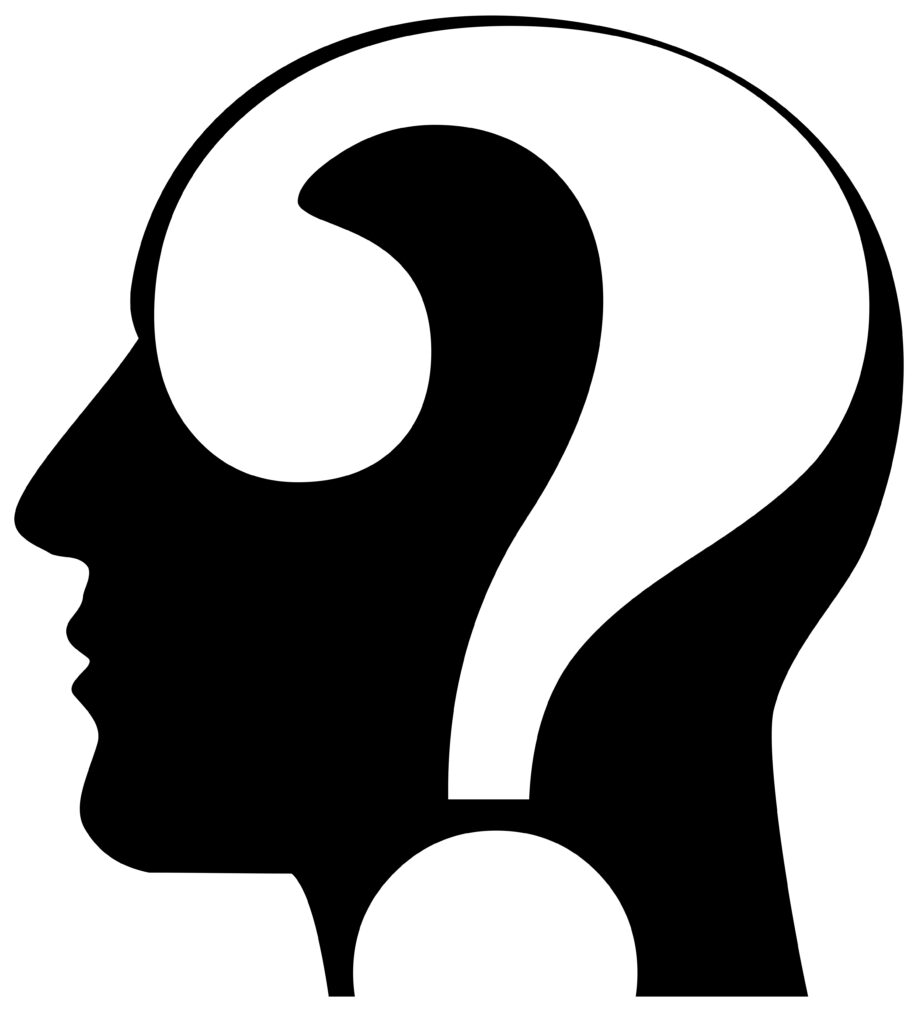
Owen Jones, Public domain, via Wikimedia Commons
Are Potiphar and POTIPHERA the same person?
You might say, “Of course not!” But some scholars say Joseph’s Egyptian master–Potiphar–and his eventual father-in-law–POTIPHERA–might have been the same person. Perhaps their names were spelled differently in later translations.
Nope. I don’t buy it. Especially when Genesis clearly states that Potiphar was captain of Pharaoh’s guard (39:1) and Potiphera was a priest in On (41:45). Plus, it would have been too cruel for Joseph to endure the ill treatment of Potiphar’s household (sexual harassment, unjust accusations, and years of imprisonment) and then have the same guy become his father-in-law.
Why not stick with the simplest explanation? We’ll differentiate Potiphar as Joseph’s master when he arrived in Egypt and Potiphera as the father of Joseph’s bride.
So, let’s dig into Potiphera:
- Who is this guy Potiphera?
- What did it mean to be a priest in the city of On?
- And why was HIS daughter chosen to become Joseph’s wife?
Today, we’ll take a closer look at the Bible, geography, and history to see what more we can learn about Joseph’s mysterious father-in-law…
Who Were Pharaoh’s Counselors?
The Bible tells us Pharaoh had nightmares that kept him awake, and none of his wise men or magicians could interpret them.
“In the morning his mind was troubled, so he sent for all the magicians and wise men of Egypt. Pharaoh told them his dreams, but no one could interpret them for him.” Genesis 41:8
Who were those wise men and magicians? To answer that question, we must look at Egyptian culture and understand how they viewed their king.
At Pharaoh’s coronation, he was believed to become the living, breathing son of a god–whichever god he’d chosen as his patron deity. Many Hyksos pharaohs chose Seth, the crocodile god, as their patron deity, but since the pharaoh in Genesis 41 chose to give Joseph the daughter of On’s priest, it’s likely he’d chosen Ra as his patron deity. We’ll talk about that more below…
Since pharaoh was considered the son of god who sat on the throne in human form, he surrounded himself with priests of ALL other gods to form his own “otherworldly” counsel on earth. Hearing from priests of various gods was the equivalent of hearing from those gods themselves.
Was Potiphera On Pharaoh’s Council?
In all likelihood, Potiphera was among the counselors who had failed to interpret Pharaoh’s dreams earlier in the day and was also present when Joseph gave HIS GOD credit for both the interpretation and the wise plan to survive the next fourteen years.
“Pharaoh said to Joseph, ‘I had a dream, and no one can interpret it. But I have heard it said of you that when you hear a dream you can interpret it.’ ‘I cannot do it,’ Joseph replied to Pharaoh, ‘but God will give Pharaoh the answer he desires.'” Genesis 41:15–16 (emphasis added)
Joseph made it very clear that it was the Hebrew God who gave him the ability to interpret Pharaoh’s dreams–not any of Egypt’s hundreds of deities. The interpretations weren’t simply seven years of harvests and another seven years of famine. They were record abundance and severe famines such as Egypt had never recorded in its history, and the Lord gave him a plan–right there on the spot.
Did Potiphera Love/Hate Joseph?
Short answer: the Bible doesn’t say.
But can you imagine Pharaoh’s counselors looking at each other and saying, “Who is this guy?” Fresh out of prison, consider Joseph’s appearance. He had a bath, a shave, and a clean robe. However, he’s likely been underground–which is where Pharaoh’s prisoners were kept–for years. No sunshine, so physically low on vitamin D. Did he have other nutritional deficits? Dunno.
Did he speak with a Hebrew accent? Did he have lighter-brown hair? Lighter skin than the native Egyptians? Regardless of his brilliant, God-inspired wisdom, he would have had some physical hurdles to cross.
When writing biblical FICTION, I use historical, cultural, and geographical research to create an educated story that portrays both biblical and fictional characters in a way that’s consistent with biblical Truth. Potiphera is the primary villain of In Feast or Famine (Amazon aff link). He’s a power-hungry high priest of Ra who serves in the largest, most influential temple in the city of On–only a day’s sail from Avaris, Lower Egypt’s capital city.
And he hates Joseph for a variety of reason…
Joseph’s Hebrew God
When Joseph and his God interpreted Pharaoh’s dreams, it humiliated Egypt’s gods and their priests (wise men and magicians). Potiphera might have been able to tolerate the arrogant Amu ex-prisoner with the powerful God–even submitted to Pharaoh awarding the Hebrew his daughter as a gift–if Joseph hadn’t insisted his God was the only true God.
That was intolerable.
Not only was Joseph too stubborn to embrace other gods, he would always and forever be HEBREW–a fact he could never change. As I studied the political climate of the Hyksos Dynasty, and made the assumption that Potiphera was likely a full-blooded Egyptian high priest of Ra, the sparks of his relationship with his new Hebrew son-in-law turned to flames.
A Hebrew Hyksos
In Egypt, during this time period, Joseph would have been lumped together as “Amu”–a name given to foreigners (likely Amorites)–who came from Canaan and stole Egypt’s throne from Egyptian royalty.
Why did the Amu migrate in droves to Egypt? Scholars have said (and I paraphrase):
“Because wealthy Bedouins drove the Amu off their land in Canaan, pushing them south into Egypt’s fertile Delta and beyond.”
I’ve never seen anyone actually NAME those wealthy Bedouins, but doesn’t it make sense that as God blessed his Covenant people with wealth (more flocks and herds), Abraham, Isaac, and Jacob needed more land? It seems obvious that they drove the “Amu” (and other Canaanites) south into Egypt where these displaced tribes spent their aggression and grew powerful enough to rule. Here’s a biblical passage that hints at the truth of my theory:
“Then [Jacob] said to Joseph, ‘I am about to die, but God will be with you and take you back to the land of your fathers. And to you I give one more ridge of land than to your brothers, the ridge I took from the Amorites with my sword and my bow.'” Genesis 48:21–22
A Special Kind of Racism
Do you see why there might have been animosity between not only full-blooded Egyptians and the foreign-ruling Hyksos but also serious distaste for the Hebrew tribe (wealthy Bedouins) who had been driving the “Amu” into Egypt for generations?
“They served him by himself, the brothers by themselves, and the Egyptians who ate with him by themselves, because Egyptians could not eat with Hebrews, for that is detestable to Egyptians.” Genesis 43:32
Joseph’s Package Deal
When Joseph interpreted the dreams and proposed God’s wise plan, Pharaoh not only freed him from his an unjust prison sentence, he also piled on SEVEN specific rewards that each had significance:
“So Pharaoh said to Joseph, ‘I hereby put you in charge of the whole land of Egypt.’ Then Pharaoh took his signet ring from his finger and put it on Joseph’s finger. He dressed him in robes of fine linen and put a gold chain around his neck. He had him ride in a chariot as his second-in-command, and people shouted before him, ‘Make way!’ Thus he put him in charge of the whole land of Egypt. Then Pharaoh said to Joseph, ‘I am Pharaoh, but without your word no one will lift hand or foot in all Egypt.’ Pharaoh gave Joseph the name Zaphenath-Paneah and gave him Asenath daughter of Potiphera, priest of On, to be his wife. And Joseph went throughout the land of Egypt.” Genesis 41:41–45 (emphasis added)
The Significance of Joseph’s 7 Rewards:
- Signet ring – imprinted with Pharaoh’s unique throne name, Joseph could essentially sign Pharaoh’s name to any command as if it came from the king himself.
- Robes of fine linen – Egypt’s most famous export and the foremost sign of wealth; Joseph needed to dress the part of second in power over the entire nation.
- Gold chain around his neck – more of dressing the part; Joseph needed to command the respect of people by his appearance alone.
- Ride in Pharaoh’s chariot – this is another indication that Joseph ruled during or after the Hyksos Dynasty since it was the Hyksos who introduced chariots to Egypt.
- Herald running before Joseph to announce his status – again, people needed to know he was important before he ever opened his mouth (did Joseph have a Hebrew accent that they needed to overcome before he spoke so people would fear/respect him immediately?).
- In charge of the whole land of Egypt – during the Hyksos Dynasty, Egypt was split into Two Lands (Upper and Lower Egypt); Joseph’s pharaoh ruled only Lower Egypt, but the feast and famine would affect ALL OF EGYPT. This pharaoh made the executive decision to make him vizier over both lands–without consulting the other ruling king.
- Gave Joseph an EGYPTIAN wife (the daughter of the priest of Ra) – the patron god of On was Ra, the sun god (called Amun in Upper Egypt and later changed to Amun-Ra or Amun-Re). This is a crucial political and religious strategy for a Hyksos (foreign) king on Egypt’s throne to curry favor with pure-blooded Egyptians!
Taking a Deeper Look
Why is it important to take a deeper look at Potiphera? Because it’s sometimes easy to read over Genesis 41 and think that once Joseph was released from prison, his life was instantly FABULOUS! All the bad stuff was behind him, right:
- His brother’s hatred & betrayal
- Slavery in Egypt
- Temptation of Potiphar’s wife
- False accusations
- Unjust imprisonment
But neither Joseph’s life nor ours works that way. Every one of Joseph’s trials came with God’s faithful presence and some measure of blessing, and every season of God’s abundant blessing comes with some measure of hardship. It’s the way life works on this sin-sick earth. If we didn’t experience hardships, how could we feel the thrill of our faith or hope realized?
Want to Know More?
If you’d like to read more about Potiphera’s life BEFORE his rise to power in Pharaoh’s court, be sure to pre-order In Feast or Famine TODAY and receive an exclusive prequel chronicling Potiphera’s early years as a priest, his courtship with Asenath’s mother, and another reason he might have disliked Hebrews!
As part of the pre-order special, my publisher is offering the opportunity to participate in the special Launch Team (if you’d like) but also has included several GIFTS FOR YOU!
- A FREE BOOK of your choice–any of my Waterbrook-published titles! Keep your pre-order receipt (or take a screenshot of your purchase confirmation) and upload it at this link: https://form.jotform.com/230574893192969. You’ll then get to choose one free paperback of either: The Pharaoh’s Daughter, Miriam, Isaiah’s Daughter, Isaiah’s Legacy, Of Fire and Lions, or a second copy of In Feast or Famine! (Sorry, BOGO offer good only for U.S. residents only.)
- You’ll also receive a link to download the exclusive prequel: The Songbird: Part 1, The Courtship of Potiphera and Katesch, which tells the love story of Asenath’s parents.
- Receive the NEW BOOK CLUB KIT link! Find resources for ALL my Waterbrook titles all in one place! Sneak Peek chapters, discussion questions, and more–for all seven books in my Waterbrook library!
- Join the Launch Team and be included in lots more giveaways and exclusive offers!
Today’s Question:
- Did today’s post stir any other questions you might have about Potiphera?



